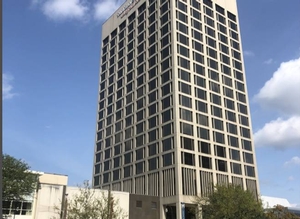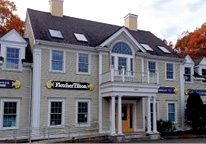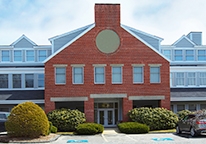Articles
The Massachusetts Nominee (or "Realty" Trust) Perhaps a New Tool to Protect One's House
By Michael T. Lahti on April 2, 2021Imagine you are observing an estate planning appointment. At some point, you would hear the client say, “I want to protect my assets.” It is a common request. It is why people do estate planning. They want to protect their assets. The real question is, “Protect them from what?”
There are many risks. Lawsuits, divorce, bankruptcy, long-term medical (i.e., nursing home) costs, loss of public benefits, taxation, probate and even mismanagement by the beneficiary themselves are common ways property can be taken from you or your heirs.
This article will address merely a small segment of asset protection, that being how the use of a Massachusetts Nominee Trust, or as it is commonly known, a “realty trust,” may now offer another option to protect one’s real estate.
When is a trust not a trust? The answer might be when you have a nominee trust. A nominee trust is not a trust at all. It is more accurately a principal-agent relationship. An agent (the “trustee” named in the instrument) acts at the behest of an undisclosed principal (the person or persons listed on the “schedule of beneficial interest”).
The nominee trust keeps the “real” owner’s identity private,1 allows for off-record transfers,2 and facilitates partial property ownership.3 Traditionally these qualities, and the potential that unscrupulous persons might abuse them, made nominee trusts highly suspect and therefore less than optimal as a tool for protecting one’s residence from long-term medical costs.
People often assume that nursing homes “take” their houses. In 2021 in Massachusetts, the house is an exempt asset unless the equity surpasses $906,000. It should be made clear that the house (and any other assets, for that matter) will never be “taken.” What does happen is that when one goes into a nursing home and MassHealth4 is needed to pay the costs, countable (non-exempt) assets need to be spent down before MassHealth coverage begins.5 At that point, a lien is placed on real estate6. The lien is collected upon death from one’s probate estate.7
The inherent advantages of the nominee trust put MassHealth at a distinct disadvantage. Because of this, MassHealth routinely lumped together and treated nominee trusts in the same fashion as typical revocable trusts and counted the assets inside them.8 Recently, the Supreme Judicial Court of Massachusetts addressed this issue in Guilfoil v. Sec’y of Exec. Off. of Health & Hum. Servs., 486 Mass. 788, 162 N.E.3d 627 (2021), “Guilfoil.”
In Guilfoil, the nursing home applicant placed her residence inside a nominee trust. The nominee trust was typical in many ways but differed from the norm in other vital areas. In Guilfoil, the nominee trust could be revoked only with the consent of all holders of the beneficial interest, and the applicant retained only a life estate.9 10
The court contrasted the retained life estate to other forms of direct property ownership interests such as joint tenancy, tenancy in common and tenants by the entirety. It noted that a life estate holder could not unilaterally amend the terms to alter the beneficial interest. The court further explained that because a life estate does not permit an individual to sell the home and distribute the proceeds, a life estate in one’s primary residence does not render the property a countable asset for MassHealth.
The court’s decision in Guilfoil will likely result in the increased use of nominee trusts as a planning tool to protect one’s property. The advantages of nominee trusts of privacy, off-record transfers and ease of creating partial property interests will entice many people. But keep in mind that although the decision in Guilfoil might add a powerful new option for the estate planner and his or her clients, it is no panacea, as planning must still fit within the parameters of the law. Protective planning like this involves an inherent loss of control over the property and must be established at least five years before the MassHealth application itself. Still, nominee trusts may now be a unique and helpful tool that our clients might use for protecting their houses.
Protecting one’s house (and other assets) from long-term medical costs is not “do it yourself” estate planning and should only be considered with the help of an experienced estate planner. Should you have concerns regarding the advantages (and disadvantages) of such planning, please reach out to one of the attorneys at Fletcher Tilton PC, and we will be happy to guide you through the process. FT
1 Do not conflate privacy with asset protection. In a lawsuit, the holders of the beneficial interest are “discoverable.”
2 The holders of the beneficial interest can simply assign ownership to another without the necessity of recording anything at the registry of deeds.
3 This allows different parties to own different ownership interests in the property, which can be useful when spouses are trying to balance wealth between them, when smaller ownership interests are transferred or, now, when different types of ownership interests are desired (for instance, when one party holds the life interest and another holds the remainder interest).
4 In Massachusetts, MassHealth is the agency providing and coordinating medical benefits in a nursing home setting when assets have depleted for the person needing care.
5 One cannot have more than two thousand dollars (US $2,000).
6 Optimally, at that point the house will be protected. But if it is not protected, you would at least want it to be deemed as an exempt asset so that MassHealth coverage would commence without further assets needing to be spent, and the amount eventually recovered from the equity of the house will be at the lower state rate MassHealth pays compared to the cost for nursing homes that one would have to pay privately.
7 If the real estate does not pass through probate, the lien does not attach to it and the property is “protected.”
8 All assets inside a revocable trust are countable assets for MassHealth purposes.
9 Typically, in nominee trusts, any holder of beneficial interest can cause the trust to be revoked and assets distributed.
10 A “life estate” is temporal and allows a person merely the use of the property for his or her lifetime.
©2021. This material is intended to offer general information to clients and potential clients of the firm, which information is current to the best of our knowledge on the date indicated below. The information is general and should not be treated as specific legal advice applicable to a particular situation. Fletcher Tilton PC assumes no responsibility for any individual’s reliance on the information disseminated unless, of course, that reliance is as a result of the firm’s specific recommendation made to a client as part of our representation of the client. Please note that changes in the law occur and that information contained herein may need to be reverified from time to time to ensure it is still current. This information was last updated April 2021.
There are many risks. Lawsuits, divorce, bankruptcy, long-term medical (i.e., nursing home) costs, loss of public benefits, taxation, probate and even mismanagement by the beneficiary themselves are common ways property can be taken from you or your heirs.
This article will address merely a small segment of asset protection, that being how the use of a Massachusetts Nominee Trust, or as it is commonly known, a “realty trust,” may now offer another option to protect one’s real estate.
When is a trust not a trust? The answer might be when you have a nominee trust. A nominee trust is not a trust at all. It is more accurately a principal-agent relationship. An agent (the “trustee” named in the instrument) acts at the behest of an undisclosed principal (the person or persons listed on the “schedule of beneficial interest”).
The nominee trust keeps the “real” owner’s identity private,1 allows for off-record transfers,2 and facilitates partial property ownership.3 Traditionally these qualities, and the potential that unscrupulous persons might abuse them, made nominee trusts highly suspect and therefore less than optimal as a tool for protecting one’s residence from long-term medical costs.
People often assume that nursing homes “take” their houses. In 2021 in Massachusetts, the house is an exempt asset unless the equity surpasses $906,000. It should be made clear that the house (and any other assets, for that matter) will never be “taken.” What does happen is that when one goes into a nursing home and MassHealth4 is needed to pay the costs, countable (non-exempt) assets need to be spent down before MassHealth coverage begins.5 At that point, a lien is placed on real estate6. The lien is collected upon death from one’s probate estate.7
The inherent advantages of the nominee trust put MassHealth at a distinct disadvantage. Because of this, MassHealth routinely lumped together and treated nominee trusts in the same fashion as typical revocable trusts and counted the assets inside them.8 Recently, the Supreme Judicial Court of Massachusetts addressed this issue in Guilfoil v. Sec’y of Exec. Off. of Health & Hum. Servs., 486 Mass. 788, 162 N.E.3d 627 (2021), “Guilfoil.”
In Guilfoil, the nursing home applicant placed her residence inside a nominee trust. The nominee trust was typical in many ways but differed from the norm in other vital areas. In Guilfoil, the nominee trust could be revoked only with the consent of all holders of the beneficial interest, and the applicant retained only a life estate.9 10
The court contrasted the retained life estate to other forms of direct property ownership interests such as joint tenancy, tenancy in common and tenants by the entirety. It noted that a life estate holder could not unilaterally amend the terms to alter the beneficial interest. The court further explained that because a life estate does not permit an individual to sell the home and distribute the proceeds, a life estate in one’s primary residence does not render the property a countable asset for MassHealth.
The court’s decision in Guilfoil will likely result in the increased use of nominee trusts as a planning tool to protect one’s property. The advantages of nominee trusts of privacy, off-record transfers and ease of creating partial property interests will entice many people. But keep in mind that although the decision in Guilfoil might add a powerful new option for the estate planner and his or her clients, it is no panacea, as planning must still fit within the parameters of the law. Protective planning like this involves an inherent loss of control over the property and must be established at least five years before the MassHealth application itself. Still, nominee trusts may now be a unique and helpful tool that our clients might use for protecting their houses.
Protecting one’s house (and other assets) from long-term medical costs is not “do it yourself” estate planning and should only be considered with the help of an experienced estate planner. Should you have concerns regarding the advantages (and disadvantages) of such planning, please reach out to one of the attorneys at Fletcher Tilton PC, and we will be happy to guide you through the process. FT
1 Do not conflate privacy with asset protection. In a lawsuit, the holders of the beneficial interest are “discoverable.”
2 The holders of the beneficial interest can simply assign ownership to another without the necessity of recording anything at the registry of deeds.
3 This allows different parties to own different ownership interests in the property, which can be useful when spouses are trying to balance wealth between them, when smaller ownership interests are transferred or, now, when different types of ownership interests are desired (for instance, when one party holds the life interest and another holds the remainder interest).
4 In Massachusetts, MassHealth is the agency providing and coordinating medical benefits in a nursing home setting when assets have depleted for the person needing care.
5 One cannot have more than two thousand dollars (US $2,000).
6 Optimally, at that point the house will be protected. But if it is not protected, you would at least want it to be deemed as an exempt asset so that MassHealth coverage would commence without further assets needing to be spent, and the amount eventually recovered from the equity of the house will be at the lower state rate MassHealth pays compared to the cost for nursing homes that one would have to pay privately.
7 If the real estate does not pass through probate, the lien does not attach to it and the property is “protected.”
8 All assets inside a revocable trust are countable assets for MassHealth purposes.
9 Typically, in nominee trusts, any holder of beneficial interest can cause the trust to be revoked and assets distributed.
10 A “life estate” is temporal and allows a person merely the use of the property for his or her lifetime.
©2021. This material is intended to offer general information to clients and potential clients of the firm, which information is current to the best of our knowledge on the date indicated below. The information is general and should not be treated as specific legal advice applicable to a particular situation. Fletcher Tilton PC assumes no responsibility for any individual’s reliance on the information disseminated unless, of course, that reliance is as a result of the firm’s specific recommendation made to a client as part of our representation of the client. Please note that changes in the law occur and that information contained herein may need to be reverified from time to time to ensure it is still current. This information was last updated April 2021.

















